
Eifel National Park: Germany's Natural Haven
Eifel National Park, located in the North Rhine-Westphalia region of Germany, is a splendid destination for nature lovers and adventurers alike. Spanning over 110 square kilometers, the park offers a diverse landscape of dense forests, tranquil lakes, and rolling hills. The park is home to an array of wildlife, including the elusive wildcat and the majestic red deer, making it a paradise for wildlife enthusiasts. Hiking and cycling are popular activities in Eifel National Park, with numerous trails catering to all levels of fitness and experience. The Eifelsteig trail is particularly famous, stretching for 313 kilometers and offering breathtaking views of the park's natural beauty. For those interested in history, the park also features remnants of ancient volcanoes and former military bunkers, providing a fascinating glimpse into the region's past. The park is also an excellent spot for birdwatching, with over 230 species recorded in the area. The Urftsee reservoir is a must-visit, offering serene waters and opportunities for boating and fishing. For a unique experience, visit the Vogelsang IP, a former Nazi training camp now transformed into an educational and cultural center. Eifel National Park is a year-round destination, with each season offering its own unique charm and activities.
Local tips in Eifel National Park
- Visit during spring or autumn for the best weather and fewer crowds.
- Bring binoculars for birdwatching; the park is home to many rare species.
- Wear sturdy hiking boots; the trails can be rugged and uneven.
- Check out the National Park Center for maps, information, and guided tours.
- Pack a picnic and enjoy lunch by the Urftsee reservoir.
Eifel National Park: Germany's Natural Haven
Eifel National Park, located in the North Rhine-Westphalia region of Germany, is a splendid destination for nature lovers and adventurers alike. Spanning over 110 square kilometers, the park offers a diverse landscape of dense forests, tranquil lakes, and rolling hills. The park is home to an array of wildlife, including the elusive wildcat and the majestic red deer, making it a paradise for wildlife enthusiasts. Hiking and cycling are popular activities in Eifel National Park, with numerous trails catering to all levels of fitness and experience. The Eifelsteig trail is particularly famous, stretching for 313 kilometers and offering breathtaking views of the park's natural beauty. For those interested in history, the park also features remnants of ancient volcanoes and former military bunkers, providing a fascinating glimpse into the region's past. The park is also an excellent spot for birdwatching, with over 230 species recorded in the area. The Urftsee reservoir is a must-visit, offering serene waters and opportunities for boating and fishing. For a unique experience, visit the Vogelsang IP, a former Nazi training camp now transformed into an educational and cultural center. Eifel National Park is a year-round destination, with each season offering its own unique charm and activities.
When is the best time to go to Eifel National Park?
Iconic landmarks you can’t miss
Eltz Castle
Discover the enchanting Eltz Castle, a remarkably preserved medieval fortress owned by the same family for 850 years, nestled in the scenic Eltz Forest near the Moselle River.
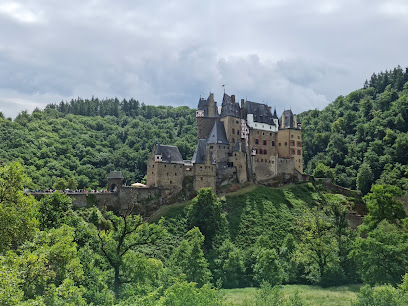
Eifelpark
Experience thrilling rides and fascinating wildlife encounters at Eifelpark Gondorf, the ultimate family destination in the heart of the Eifel region, offering fun and adventure for all ages.
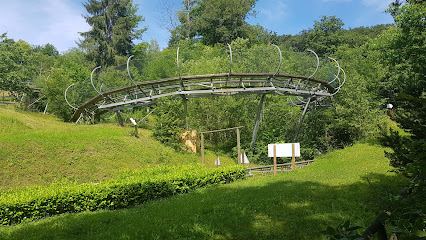
Ordensburg Vogelsang
Explore Ordensburg Vogelsang in Eifel National Park: A historical landmark transformed into a center for remembrance, education, and natural beauty, offering panoramic views and thought-provoking exhibitions.
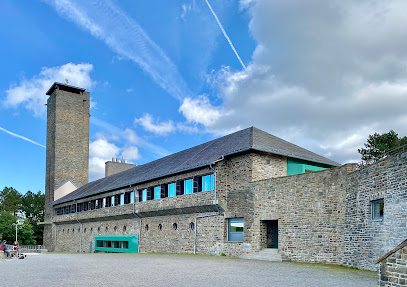
High Fens-Eifel Nature Park
Experience the unparalleled beauty and tranquility of High Fens-Eifel Nature Park, Belgium's stunning natural gem, perfect for outdoor adventures and serene escapes.
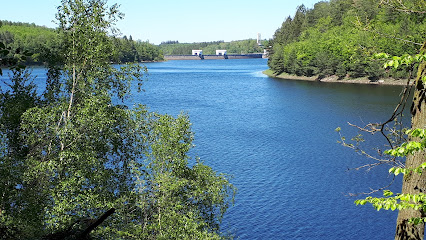
Schalkenmehrener Maar
Discover the serene beauty of Schalkenmehrener Maar, a volcanic lake in the Eifel region offering swimming, hiking, and a tranquil escape into nature's embrace, shaped by millennia of geological history.
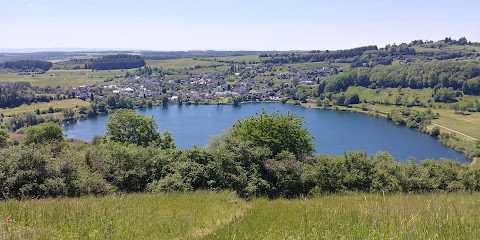
Dreimühlen-Wasserfall
Discover the enchanting Dreimühlen Waterfall in the Eifel region: a unique 'growing waterfall' sculpted by mineral-rich springs, offering scenic hikes and natural beauty.
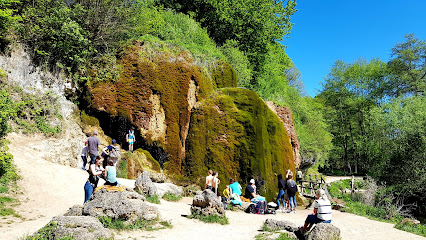
Manderscheid Lower Castle
Discover the enchanting Manderscheid Lower Castle in the Eifel region: a medieval fortress with stunning views, rich history, and captivating events for an unforgettable journey back in time.
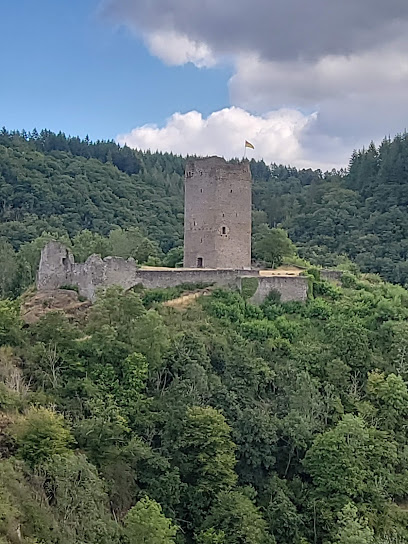
Wilder Kermeter natural adventure park
Discover Wilder Kermeter: An accessible natural adventure in Eifel National Park, offering stunning views, interactive trails, and a unique experience for all abilities.
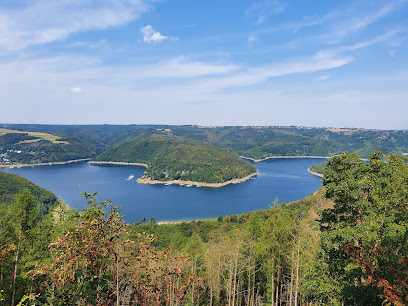
Pulvermaar mit Römerberg und Strohner Määrchen
Discover the serene beauty of Pulvermaar, a stunning volcanic lake in the heart of Germany's Eifel region, offering pristine waters, scenic hikes, and a glimpse into geological history.
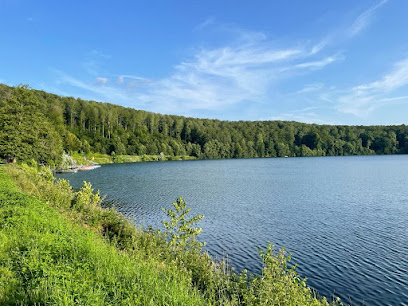
Trasshöhlen
Explore the Trasshöhlen near Brohl-Lützing: a unique landscape shaped by volcanic eruptions and centuries of mining, offering hiking and a glimpse into Eifel's past.
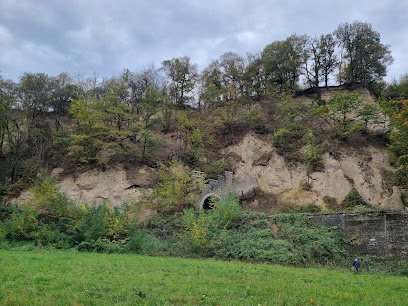
Hotel & Experience Eifeltor
Experience thrilling rides, family fun, and Eifel charm at Erlebniswelt Eifeltor, featuring a summer toboggan run, quad track, mini-golf, and direct access to local history.
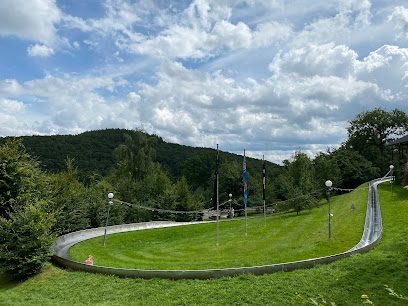
Oleftalsperre
Discover the Oleftalsperre in Hellenthal: A picturesque reservoir offering hiking, scenic views, and a tranquil escape into the heart of the Eifel's natural beauty.
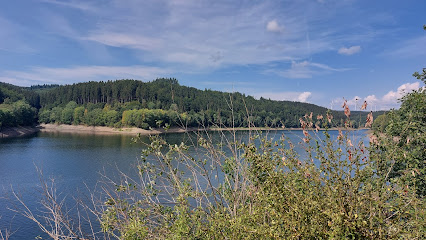
Teufelsschlucht
Explore Teufelsschlucht, a breathtaking hiking area in the Eifel region of Germany, known for its stunning scenery and serene trails.
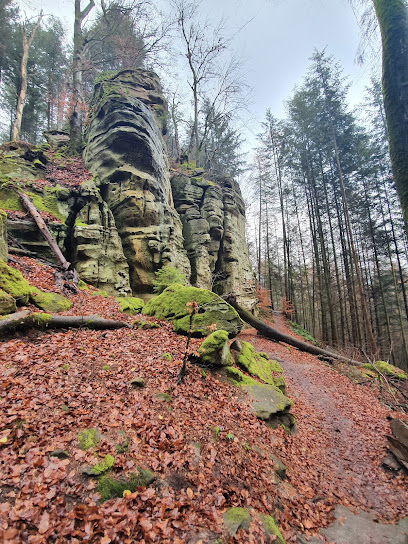
Eifelsteig - Etappe 04
Hike through the stunning landscapes of Eifel National Park on Eifelsteig Stage 4, experiencing forests, meadows, and volcanic history along this well-marked trail near Einruhr.
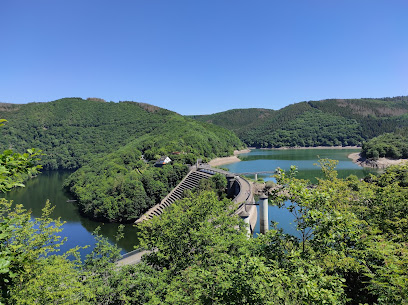
Vulkanhaus Strohn
Explore the fiery past of the Eifel region at Vulkanhaus Strohn: an interactive museum revealing the science, history, and cultural impact of volcanoes in a family-friendly setting.
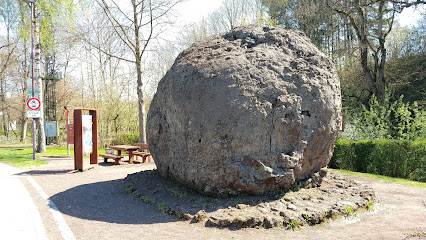
Unmissable attractions to see
Eifelpark
Discover the exciting rides and beautiful nature at Eifelpark, a premier amusement park in Gondorf, Germany, perfect for families and adventure seekers.
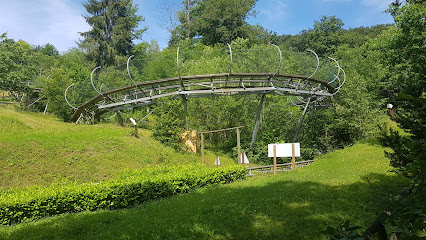
Greifvogelstation & Wildfreigehege Hellenthal
Experience the beauty of nature and the thrill of raptors at Greifvogelstation & Wildfreigehege Hellenthal, a premier wildlife park in the Eifel region.
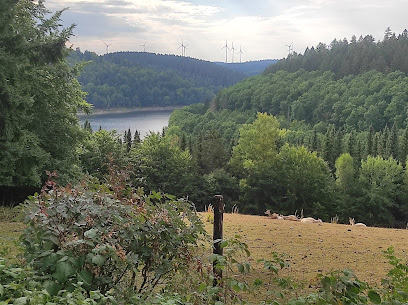
Ordensburg Vogelsang
Discover the rich history and stunning landscapes at Ordensburg Vogelsang, a unique attraction blending education and nature in the heart of Eifel National Park.
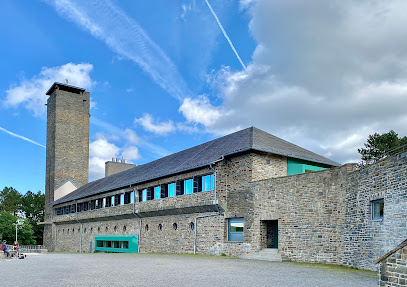
High Fens-Eifel Nature Park
Discover the breathtaking landscapes and diverse wildlife at High Fens-Eifel Nature Park, Belgium's stunning natural retreat for outdoor enthusiasts.
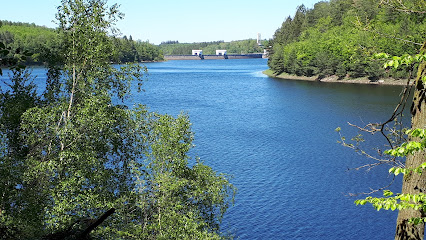
Schalkenmehrener Maar
Explore the breathtaking beauty of Schalkenmehrener Maar, a serene volcanic lake surrounded by lush nature reserves in the enchanting Eifel region of Germany.
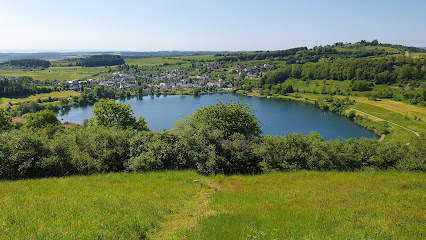
Kommern Open Air Museum
Explore Germany's rural heritage at Kommern Open Air Museum, where history comes alive through authentic buildings and engaging exhibits.
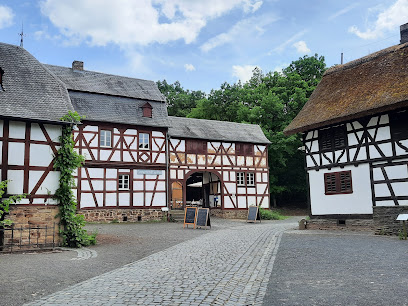
Eagle and Wolf Park Kasselburg
Explore the Eagle and Wolf Park Kasselburg, where nature meets adventure in a stunning wildlife park featuring majestic eagles and wolves.
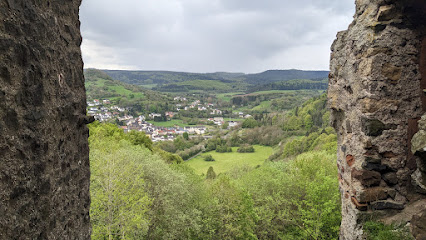
Nideggen Castle
Discover Nideggen Castle, a historical gem in Germany, showcasing medieval architecture, stunning views, and captivating artifacts.
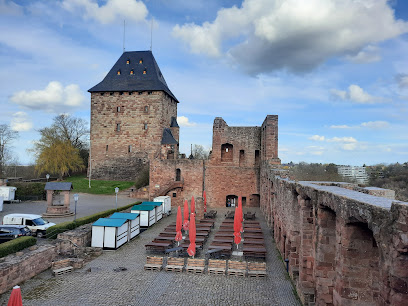
Wildpark Schmidt
Discover the enchanting Wildpark Schmidt in Nideggen, where wildlife encounters and family fun await in a beautiful natural setting.
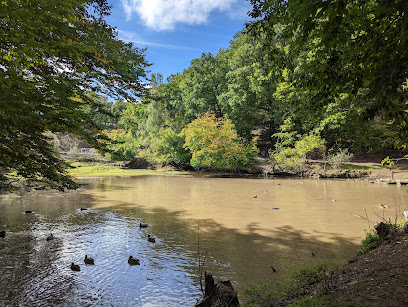
Dreimühlen-Wasserfall
Explore the natural beauty of Dreimühlen Waterfall in Hillesheim, Germany – a perfect destination for hiking and family adventures.
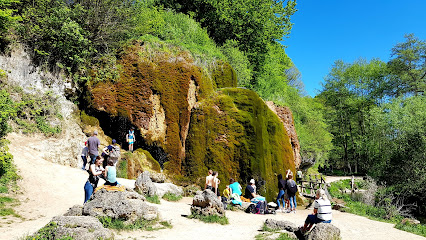
Burg Hengebach
Explore the enchanting Burg Hengebach, a historical landmark in Heimbach, perfect for hiking and immersing in scenic natural beauty.
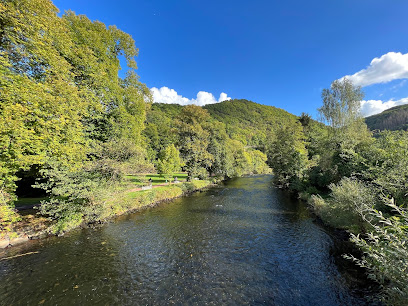
Wilder Kermeter natural adventure park
Experience the breathtaking landscapes and thrilling outdoor activities at Wilder Kermeter Natural Adventure Park, a gem in the Eifel region.

Mariawald Abbey
Experience the serenity and spiritual beauty of Mariawald Abbey in Heimbach, a historic monastery surrounded by breathtaking landscapes.
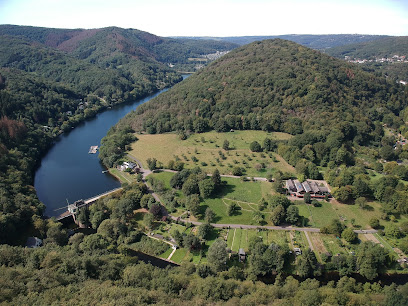
Wilder Kermeter natural adventure park
Explore the breathtaking Wilder Kermeter Natural Adventure Park in Eifel National Park, a hiker's paradise filled with stunning vistas and rich biodiversity.
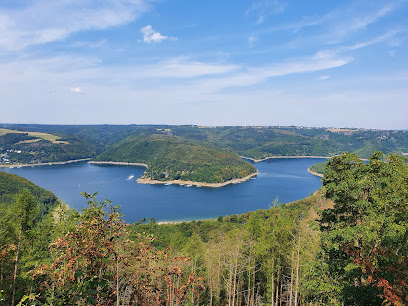
Kartsteinfelsen mit Kakushöhle
Discover the breathtaking Kartsteinfelsen and Kakushöhle, where nature's wonders await in the heart of Eifel National Park.
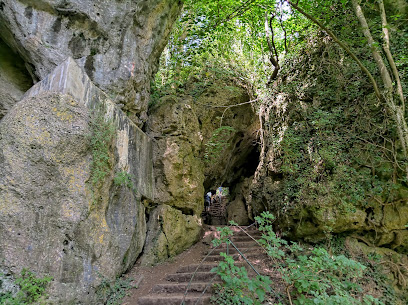
Essential places to dine
Restaurant Eifelhaus
Discover culinary delights at Restaurant Eifelhaus by Obersee – where local flavors meet stunning nature in Simmerath.
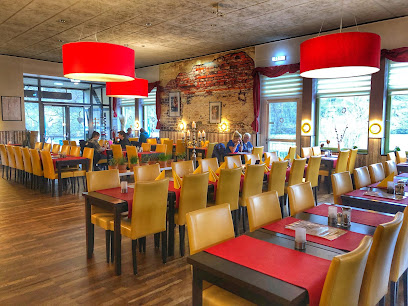
Gemünder Brauhaus
Discover Gemünder Brauhaus: A Haven for Authentic German Cuisine in Gemünd - Savor Traditional Dishes Amidst Rustic Charm.
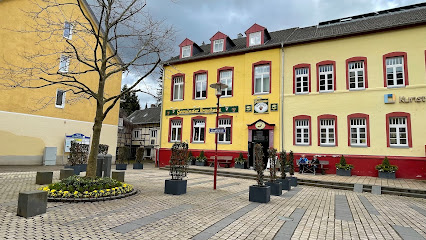
Café Maarblick Familie Lenerz
Discover Café Maarblick: A serene restaurant and coffee shop offering breathtaking views and delicious local cuisine in the heart of Eifel.

Beach Club Eifel
Discover Beach Club Eifel: A perfect blend of relaxation and vibrant nightlife in Nideggen's scenic landscape.
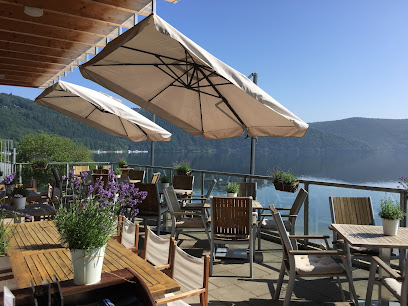
Café / Restaurant „Mausefalle“
Experience authentic German cuisine at Café / Restaurant 'Mausefalle' in Neroth – where local flavors meet cozy ambiance.
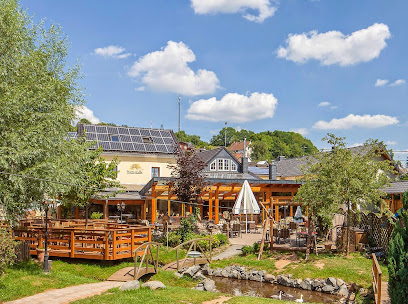
DER SEEHOF Hotel+ Restaurant Heimbach/Eifel GmbH
Experience tranquility and gourmet dining at DER SEEHOF Hotel & Restaurant in scenic Heimbach/Eifel—your gateway to nature's paradise.

Eifeler Hof
Discover authentic regional cuisine at Eifeler Hof in Heimbach - where tradition meets taste amidst stunning natural beauty.
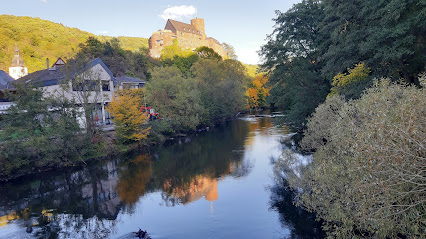
Müllisch's Hof
Discover culinary delights at Müllisch's Hof in the heart of Eifel; where authentic German cuisine meets warm hospitality.
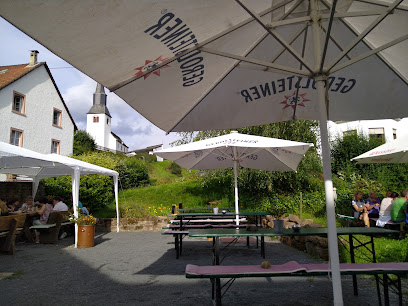
Gemünder Kurhaus & Restaurant GmbH
Discover exquisite dining at Gemünder Kurhaus & Restaurant in scenic Gemünd, where local flavors meet modern culinary art amidst stunning landscapes.
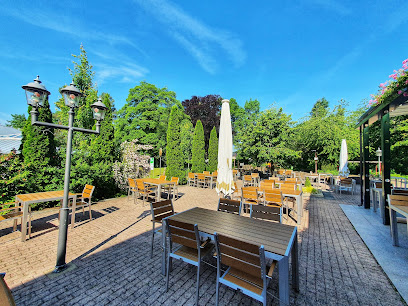
Landhotel Krolik & Landhotel Lodge
Experience comfort and European culinary delights at Landhotel Krolik & Lodge amidst the scenic Eifel landscape.
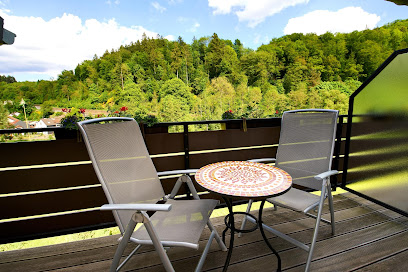
Schmidter Bauernstube am Rursee
Experience traditional German hospitality at Schmidter Bauernstube am Rursee – where comfort meets nature's beauty.

Eifel Diner Igelmund
Discover authentic German cuisine at Eifel Diner Igelmund in Alflen, where traditional flavors meet warm hospitality amidst stunning landscapes.
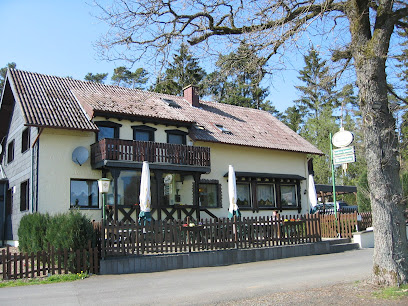
Restaurant Haus Dedenborn
Discover authentic German flavors at Restaurant Haus Dedenborn in Simmerath – a delightful dining experience awaits!
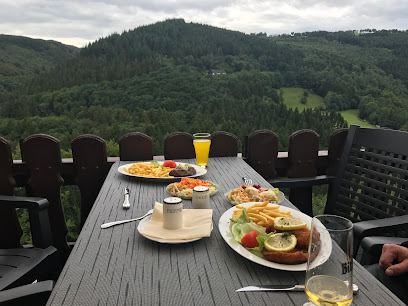
Restaurant Schloss Schleiden
Experience authentic German cuisine in a picturesque castle setting at Restaurant Schloss Schleiden.
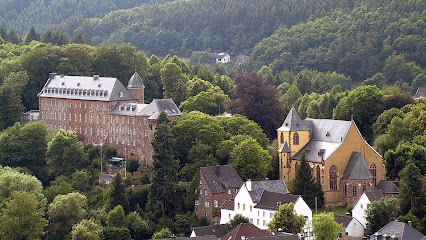
Landküche Restaurant
Discover authentic German cuisine at Landküche Restaurant in Daun - where local flavors meet warm hospitality.
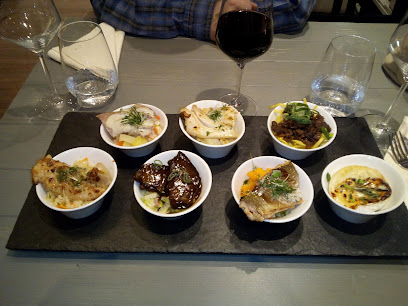
Markets, malls and hidden boutiques
Eifel National Park
Discover the breathtaking landscapes and rich wildlife of Eifel National Park, a true gem of nature in Germany's heart.
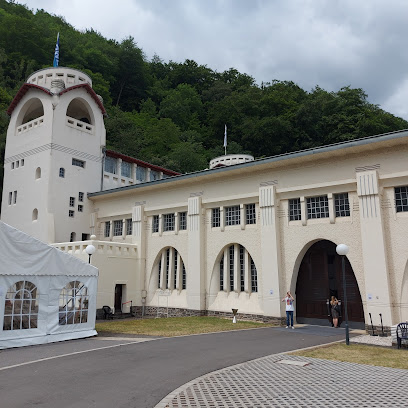
City Outlet Bad Münstereifel
Explore the picturesque City Outlet Bad Münstereifel for a unique shopping experience filled with great deals, local cuisine, and stunning historical architecture.
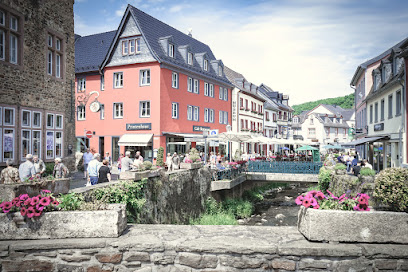
Waldi's Eifel Antik
Explore Waldi's Eifel Antik for a delightful collection of antiques and vintage treasures in the heart of the scenic Eifel region.
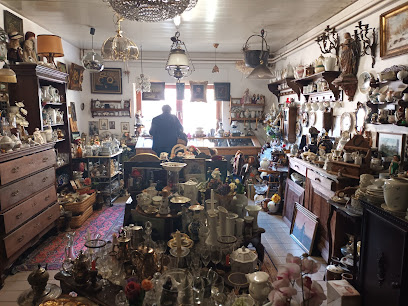
Action Germany GmbH
Explore Action Germany GmbH in Nideggen for a unique shopping experience with a vast selection of DIY, home goods, and gifts that embody local culture.
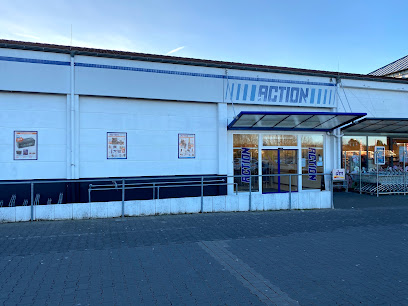
Action Simmerath
Explore a diverse shopping experience at Action Simmerath, where essentials meet creativity in a welcoming atmosphere.
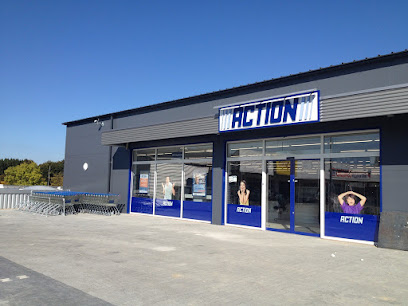
Delicat Feinkost
Discover the flavors of Heimbach at Delicat Feinkost, where gourmet food and fine wines come together in a charming deli atmosphere.
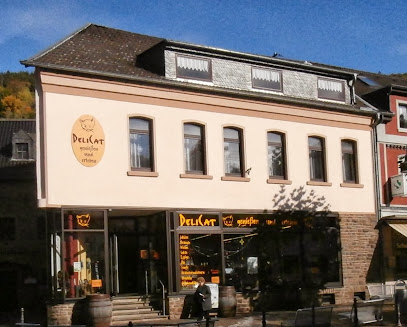
VICTOR FASHION
Discover stylish clothing and quality sportswear at VICTOR FASHION in Monschau, where fashion meets comfort in a charming setting.
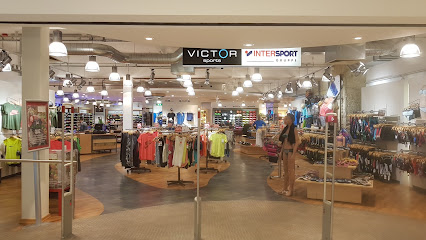
Nationalpark-Zentrum Eifel
Explore the breathtaking beauty and diverse wildlife of the Nationalpark-Zentrum Eifel, a premier destination for nature lovers and outdoor enthusiasts.
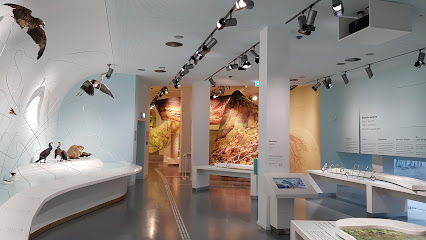
C&A
Discover stylish clothing for the whole family at C&A in Monschau, your go-to destination for fashion-forward apparel and accessories.
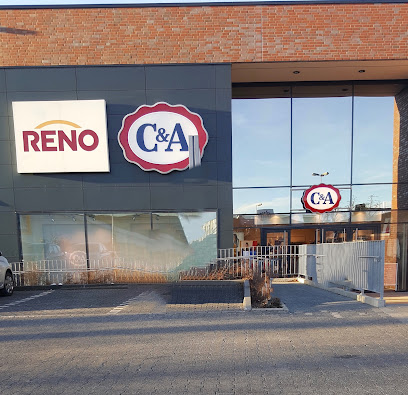
Ravi's Spätkauf & Spices
Discover the vibrant world of Asian flavors at Ravi's Spätkauf & Spices, a delightful grocery store in Schleiden offering an array of spices and snacks.
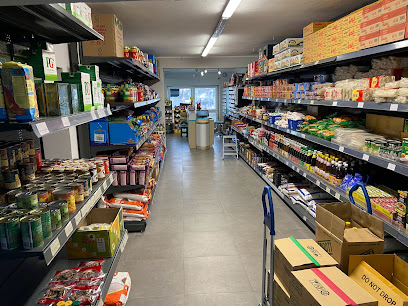
Monschauer allerlei im ehemaligem Handwerkermarkt. Chrissys-in, Geschenkartikel, Taschen, Ledergürtel, Geldbörsen, Altstadt
Explore Chrissys-in in Monschau for unique leather goods, handmade crafts, and the perfect gifts that embody the spirit of local artistry.
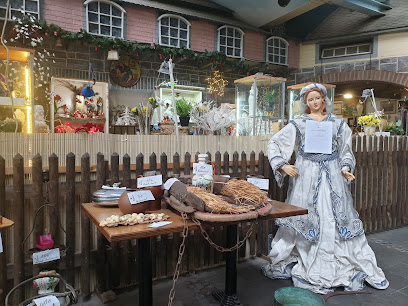
Action Monschau
Explore Action Monschau for a unique shopping experience, offering DIY supplies, home goods, and creative gifts in the heart of Germany.
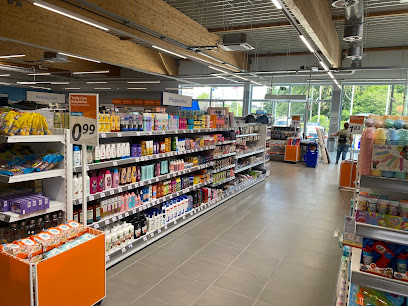
Le Cadeau
Discover authentic local products at Le Cadeau in Monschau, where artisan craftsmanship meets delightful culinary treats for an unforgettable shopping experience.
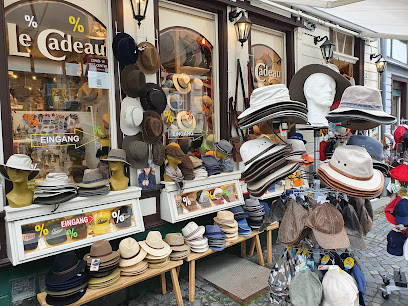
Ernsting's family
Explore Ernsting's Family in Kall for stylish and affordable clothing for the whole family, making your shopping experience enjoyable and memorable.
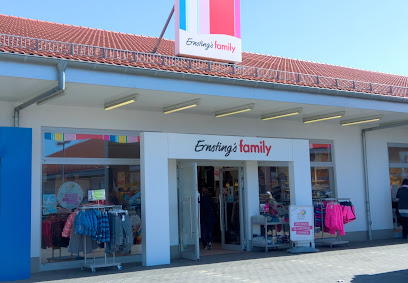
Die Macher
Experience the charm of Die Macher, a children's clothing store in Schleiden, where creativity and style meet quality fabrics for your little fashionistas.
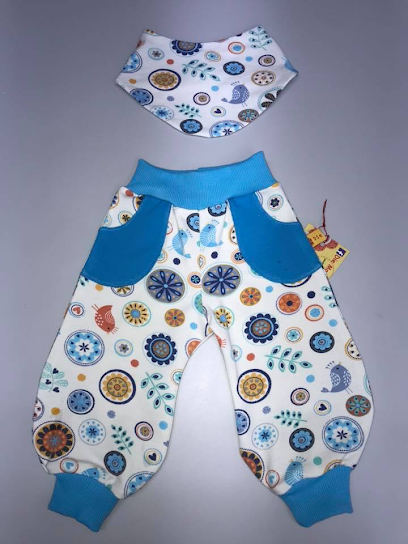
Essential bars & hidden hideouts
Biker Ranch Eifel
Experience the best of German cuisine at Biker Ranch Eifel, nestled in the scenic Eifel region, perfect for food lovers and nature enthusiasts alike.
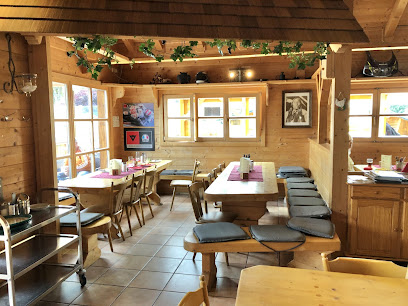
Zum Haller
Discover the culinary charm of Zum Haller in Monschau, where local ingredients meet innovative gastropub dining.
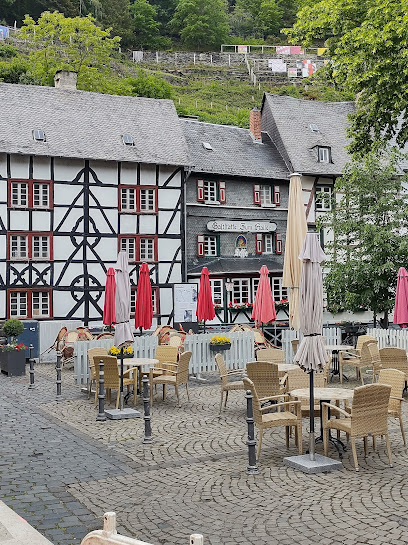
Beach Club Eifel
Experience the perfect blend of natural beauty and culinary delights at Beach Club Eifel, where every meal is a memorable adventure.
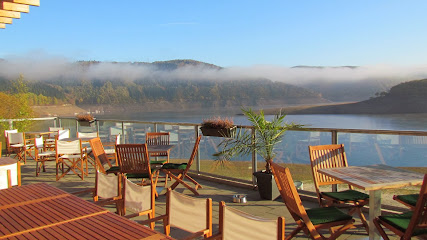
Steakhaus Büffel
Savor the best steaks in Heimbach at Steakhaus Büffel, where culinary excellence meets warm hospitality in a vibrant atmosphere.
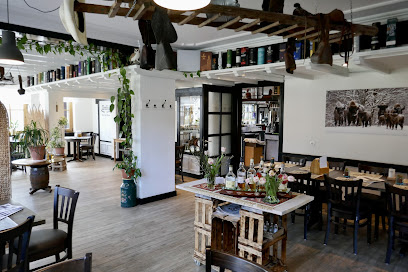
Seppi's Eck
Experience the flavors of Simmerath at Seppi's Eck, your go-to fast food kiosk for delicious, affordable meals on the go.
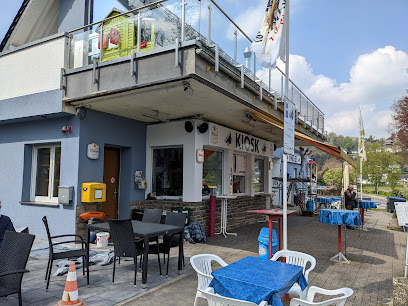
Em Höttchen Bad Münstereifel
Discover Em Höttchen in Bad Münstereifel for traditional German dishes and a cozy dining atmosphere, perfect for food enthusiasts and travelers alike.
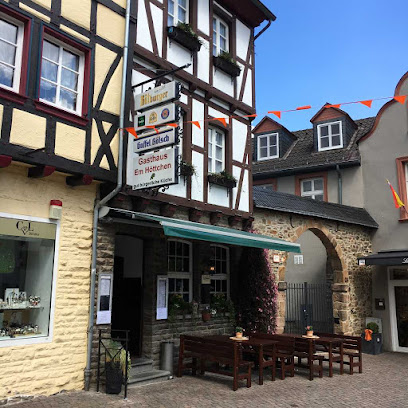
Mayer's Restaurant & Cafe
Discover the delightful flavors of Germany at Mayer's Restaurant & Cafe in Schleiden, where local ingredients and exceptional service meet.
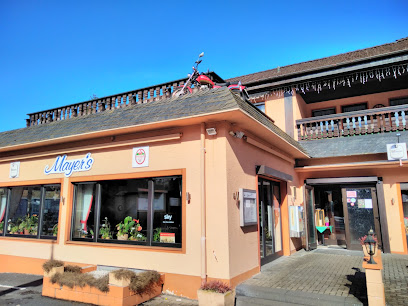
Freilinger Seebar
Enjoy refreshing drinks and stunning views at Freilinger Seebar, the perfect lakeside retreat in Blankenheim for relaxation and leisure.
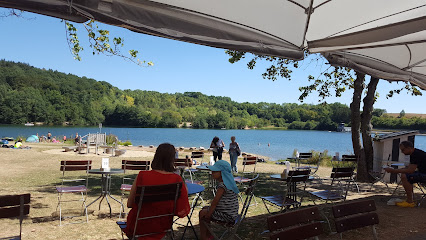
Restaurant Haus Dedenborn
Explore the flavors of traditional German cuisine at Restaurant Haus Dedenborn, a cozy dining destination in the heart of Dedenborn.
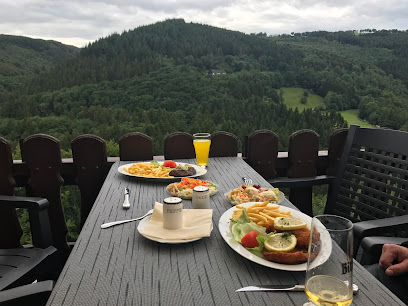
Burgschänke Wildenburg
Discover the authentic taste of German cuisine at Burgschänke Wildenburg, where tradition meets stunning landscapes in Hellenthal.
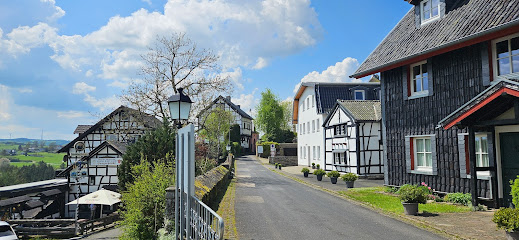
Heimbacher Brauhaus
Experience authentic German cuisine and local hospitality at Heimbacher Brauhaus, a must-visit dining destination in Heimbach.
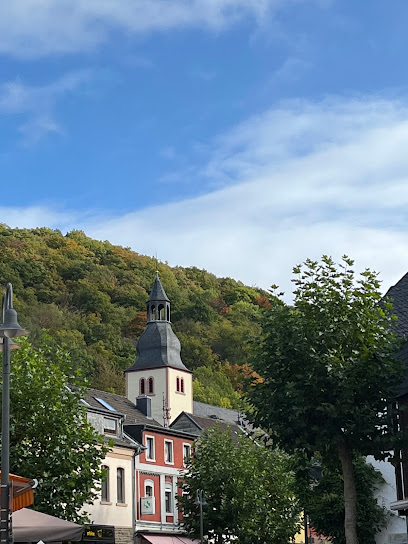
Jungmühle
Experience the perfect blend of comfort and flavor at Jungmühle, a delightful cafe and bar in the heart of Bad Münstereifel.
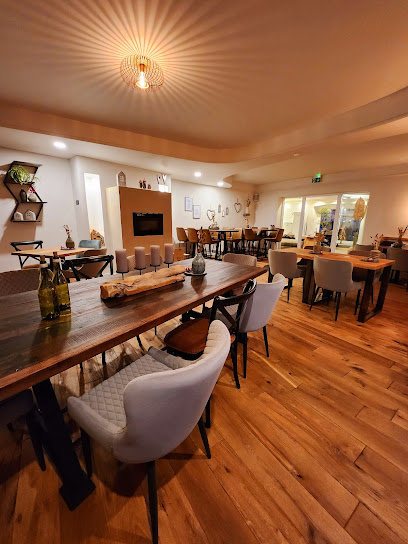
Seepavillon am Rursee
Enjoy delicious snacks and ice cream at Seepavillon am Rursee, a perfect lakeside spot for relaxation and culinary delights amidst stunning scenery.
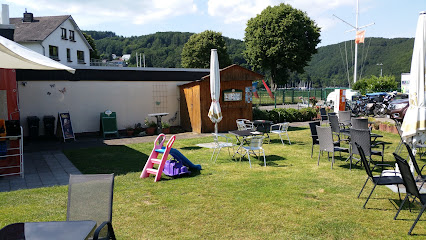
Gaststätte Bistro Bierbaum
Discover the local flavors and vibrant atmosphere at Gaststätte Bistro Bierbaum, your go-to pub and bistro in Simmerath.
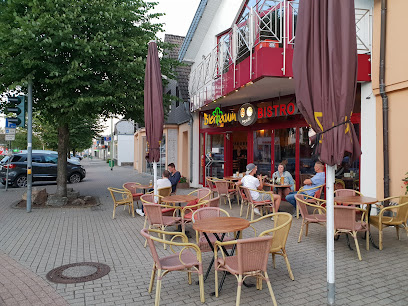
Local Phrases about Eifel National Park
-
- HelloHallo
[ha-lo] - GoodbyeAuf Wiedersehen
[ouf vee-der-zay-en] - YesJa
[ya] - NoNein
[nine] - Please/You're welcomeBitte
[bit-te] - Thank youDanke
[dahn-ke] - Excuse me/SorryEntschuldigung
[ent-shool-di-gung] - How are you?Wie geht es dir?
[vee gayt es deer] - Fine. And you?Gut. Und dir?
[goot oont deer] - Do you speak English?Sprechen Sie Englisch?
[shpre-khen zee eng-leesh] - I don't understandIch verstehe nicht
[ikh fer-shtay-e nikht]
- HelloHallo
-
- I'd like to see the menu, pleaseIch würde gerne die Speisekarte sehen, bitte
[ikh vur-deh geh-ren-eh dee shpy-ze-kahr-teh zay-en, bit-teh] - I don't eat meatIch esse kein Fleisch
[ikh es-se kine flysh] - Cheers!Prost!
[prohst] - I would like to pay, pleaseIch möchte bitte bezahlen
[ikh merkh-teh bit-teh bez-al-en]
- I'd like to see the menu, pleaseIch würde gerne die Speisekarte sehen, bitte
-
- Help!Hilfe!
[hil-feh] - Go away!Geh weg!
[geh vekh] - Call the Police!Rufen Sie die Polizei!
[roo-fen zee dee po-lee-tsai] - Call a doctor!Rufen Sie einen Arzt!
[roo-fen zee i-nen artsht] - I'm lostIch habe mich verirrt
[ikh hah-beh mikh feh-ri-rt] - I'm illIch bin krank
[ikh been krank]
- Help!Hilfe!
-
- I'd like to buy...Ich möchte kaufen...
[ikh merkh-teh kow-fen] - I'm just lookingIch schaue nur
[ikh shoye noor] - How much is it?Wie viel kostet das?
[vee feel kohs-tet dahs] - That's too expensiveDas ist zu teuer
[dahs ist tsoy toy-er] - Can you lower the price?Können Sie den Preis senken?
[kern-en zee den prees zen-ken]
- I'd like to buy...Ich möchte kaufen...
-
- What time is it?Wie spät ist es?
[vee shpayt ist es] - It's one o'clockEs ist ein Uhr
[es ist iyn oor] - Half past (10)Halb elf
[halb elf] - MorningMorgen
[mor-gen] - AfternoonNachmittag
[nahkh-mit-tahk] - EveningAbend
[ah-bent] - YesterdayGestern
[ges-tern] - TodayHeute
[hoi-teh] - TomorrowMorgen
[mor-gen] - 1Eins
[iyns] - 2Zwei
[tsvay] - 3Drei
[dry] - 4Vier
[feer] - 5Fünf
[fuhnf] - 6Sechs
[zeks] - 7Sieben
[zee-ben] - 8Acht
[ahkt] - 9Neun
[noyn] - 10Zehn
[tsayn]
- What time is it?Wie spät ist es?
-
- Where's a/the...?Wo ist ein/der...?
[vo ist iyn/dehr] - What's the address?Was ist die Adresse?
[vahs ist dee ah-dreh-seh] - Can you show me (on the map)?Können Sie mir zeigen (auf der Karte)?
[kern-en zee meer tsay-gen (ouf dehr kahr-teh)] - When's the next (bus)?Wann kommt der nächste (Bus)?
[vahn kohmt dehr nykh-ste (boos)] - A ticket (to ....)Eine Fahrkarte (nach ....)
[i-ne fahr-kahr-teh (nakh)]
- Where's a/the...?Wo ist ein/der...?
History of Eifel National Park
-
Eifel National Park is steeped in ancient history, with traces of Roman influence still visible today. The Romans constructed a network of roads and settlements in the region, facilitating trade and military movements. Remnants of these Roman roads can be found in the park, offering a glimpse into the area's strategic importance during the Roman Empire.
-
The Eifel region is dotted with medieval castles and fortresses, such as the remarkable Nürburg Castle and the imposing Reifferscheid Castle. These structures served as defensive strongholds and noble residences, reflecting the turbulent feudal era in German history. Visitors can explore these ancient fortifications and imagine the lives of knights and lords who once inhabited them.
-
Eifel National Park played a notable role during World War II, particularly during the Battle of the Bulge. The rugged terrain provided a challenging backdrop for military operations, and several remnants of wartime bunkers and fortifications remain scattered throughout the park. These historical sites serve as poignant reminders of the region's strategic significance and the impact of global conflict.
-
In the aftermath of World War II, the Eifel region underwent significant reconstruction. The establishment of Eifel National Park in 2004 marked a pivotal moment in preserving the natural and historical heritage of the area. Efforts to restore the landscape and protect biodiversity have transformed the park into a sanctuary for wildlife and a destination for nature enthusiasts and history buffs alike.
-
The Eifel region is rich in cultural traditions, deeply rooted in its rural heritage. Local festivals, such as the Eifel Music Festival and village fairs, celebrate the area's folk music, dance, and culinary delights. Traditional crafts, including pottery and weaving, are still practiced, offering visitors a chance to experience the timeless culture of the Eifel.
-
Eifel National Park is renowned for its unique geological features, shaped by volcanic activity millions of years ago. The park's maars, or volcanic crater lakes, are a testament to its fiery past. These geological wonders not only add to the park's stunning landscapes but also offer insights into the Earth's dynamic history. The Laacher See, a volcanic caldera lake, is one of the most famous geological sites in the area.
Eifel National Park Essentials
-
Eifel National Park is located in North Rhine-Westphalia, Germany. The nearest major city is Cologne, approximately 65 kilometers away. You can reach the park by car via the A1 motorway, exiting at Blankenheim. Alternatively, you can take a train to Kall or Heimbach station and use local bus services to reach the park. The park is also accessible via regional bus services from nearby towns.
-
Within Eifel National Park, transportation options include hiking, cycling, and using the park's shuttle bus services. The park has an extensive network of well-marked hiking and cycling trails. Local buses also connect key points within the park, making it easy to navigate without a car. If you plan to stay in nearby towns, renting a car can offer more flexibility for exploring the surrounding areas at your own pace.
-
The official currency in Germany is the Euro (EUR). Credit and debit cards are widely accepted in hotels, restaurants, and larger shops. However, it's advisable to carry some cash, especially when visiting smaller establishments and rural areas within the national park. ATMs are available in nearby towns such as Monschau, Kall, and Heimbach.
-
Eifel National Park is considered a very safe destination for tourists. However, standard precautions should be taken. Always let someone know your hiking plans and estimated return time. Be aware of weather conditions as they can change rapidly. There are no specific high-crime areas targeting tourists, but it's always wise to stay vigilant and secure your belongings.
-
In case of emergency, dial 112 for immediate assistance, which is the emergency number for police, fire, and medical services in Germany. The nearest hospitals are located in Euskirchen and Düren. It is recommended to have travel insurance that covers medical emergencies. For minor health issues, pharmacies can be found in nearby towns.
-
Fashion: Do wear comfortable and weather-appropriate clothing, especially sturdy hiking boots. Avoid wearing flashy or overly urban attire. Religion: Do respect local customs and religious sites, although the park primarily focuses on natural rather than religious landmarks. Public Transport: Do validate your ticket before boarding trains and buses. Don't be loud or disruptive. Greetings: Do greet people with a friendly 'Guten Tag' and a handshake. Eating & Drinking: Do try local delicacies like 'Kaiserschmarrn' and 'Apfelstrudel'. Don't litter; keep the park clean.
-
To experience Eifel National Park like a local, visit the Vogelsang IP, a former Nazi training camp turned into a museum and cultural center. Participate in guided ranger tours for an in-depth understanding of the park's flora and fauna. Try the local beverages like Eifel beer and herbal schnapps. Don't miss out on the night sky; the park is an excellent spot for stargazing due to its minimal light pollution.
Trending Landmarks in Eifel National Park
-
Eltz Castle
-
Eifelpark
-
Ordensburg Vogelsang
-
High Fens-Eifel Nature Park
-
Schalkenmehrener Maar
-
Dreimühlen-Wasserfall
-
Manderscheid Lower Castle
-
Wilder Kermeter natural adventure park
-
Pulvermaar mit Römerberg und Strohner Määrchen
-
Trasshöhlen
-
Hotel & Experience Eifeltor
-
Oleftalsperre
-
Teufelsschlucht
-
Eifelsteig - Etappe 04
-
Vulkanhaus Strohn
Nearby Cities to Eifel National Park
-
Things To Do in Spa
-
Things To Do in Bonn
-
Things To Do in Cologne
-
Things To Do in Maastricht
-
Things To Do in Liege
-
Things To Do in Clervaux
-
Things To Do in Durbuy
-
Things To Do in Vianden
-
Things To Do in La Roche-en-Ardenne
-
Things To Do in Dusseldorf
-
Things To Do in Wiltz
-
Things To Do in Genk
-
Things To Do in Diekirch
-
Things To Do in Hasselt
-
Things To Do in Echternach













